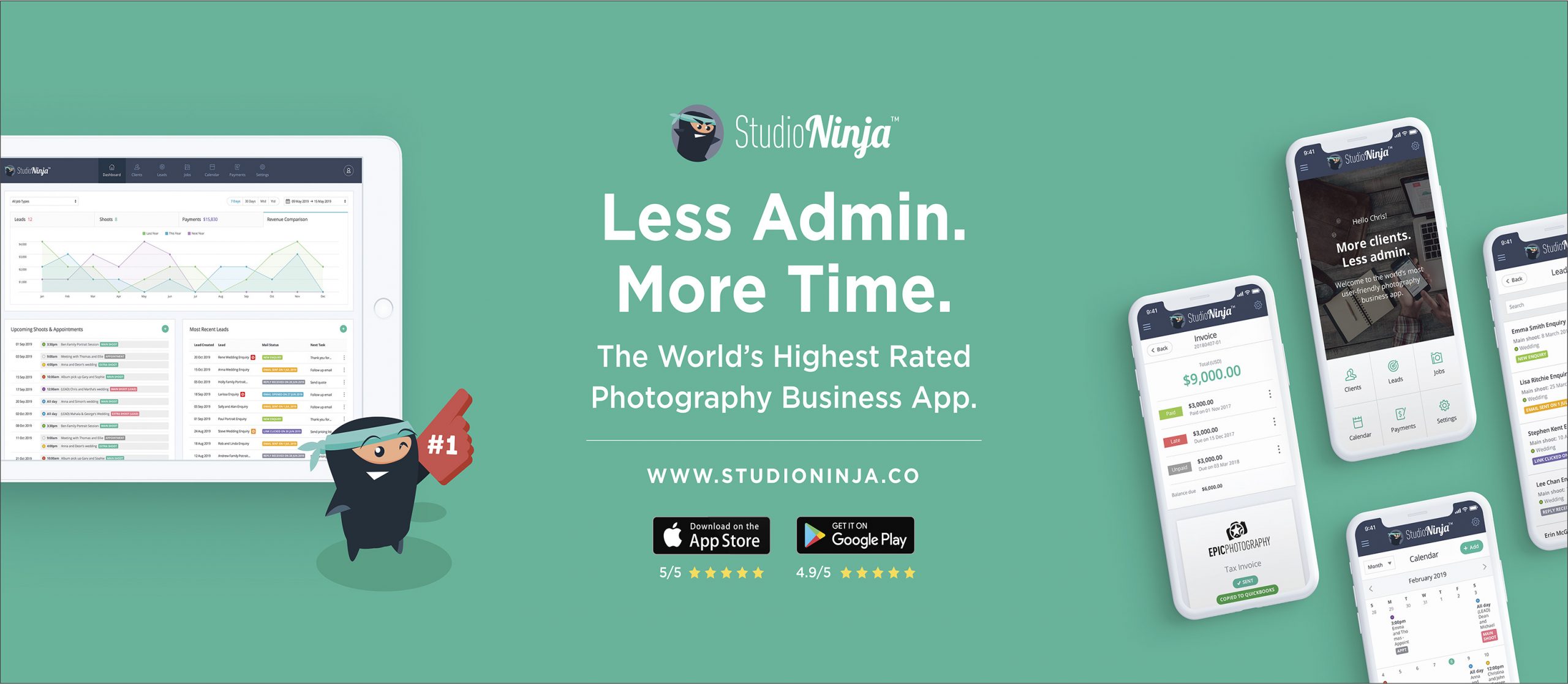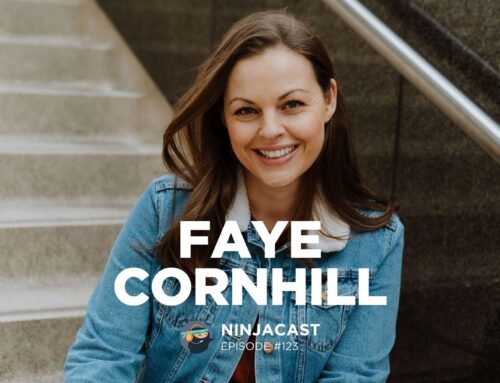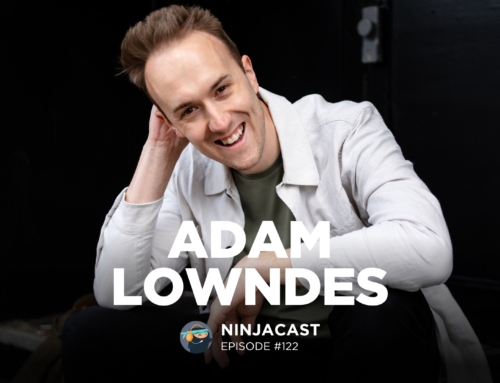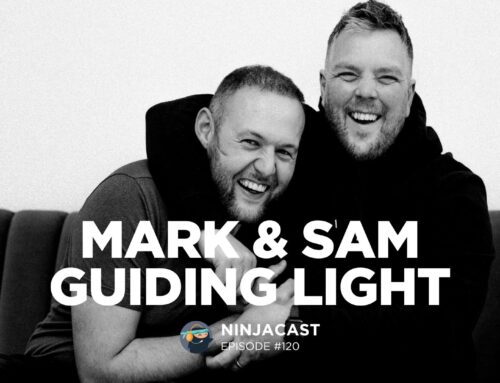047: Micaela Lindsay – How To Run Your Business Like A CEO & Make Decisions Like A Pro
November 30, 2021
“No one is coming to raise their hand to run your business for you, so whatever you’re doing is already good enough “
MICAELA LINDSAY
Hey everyone! It’s Sally here, from Studio Ninja. Today’s episode is all about Micaela Lindsay.
Check out some of the biggest points from Micaela’s interview below:
What are your top tips for Facebook & Instagram Ads?
So I think there are a couple of tips and again, pinch of salt with this one, but the first one is.. it is just money. And I’m not saying that flippantly, I know money is important. I know money can mean feeding your kids. And you can feel that way about money, some parts of the day, some parts of running your business. But there are other times when you have to think, you know, what, if it is five pounds a day or 10 pounds a day or a hundred pounds a day, whatever your budget is, and you can do, I’ve got a lot of students who are running very successful ads on just a couple quit a day.
But the point is that once you shift the biggest mindset people have is that, oh my goodness, I’m going to be wasting money. And again, a CEO is not thinking that they’re thinking, okay, I’ve made a decision to test this out with this amount of money. I know that I could earn that back if I needed to, but if it is successful, these are things that could happen for my business. And I think with that, that’s my caveat to say, just start, you know, I think you do need to find the right resources, whether that is a course or a person or YouTube, you need to decide what is worth your time. If you want to spend three weeks delving into everything on YouTube, whether you want to just pay someone a once-off fee and have access to a course that is up to you.
You are a grownup. You can make that decision yourself. But I think if we are thinking about our wedding businesses or our service based businesses, cause I’m sure there’s lots of people who used to do ninja, who might not be wedding specific. But if you’re thinking about it as a shop, as a physical space, you need to be thinking about maybe everyone who hears about you through the grapevine, or maybe clicks on your website or someone who’s just walking past. And maybe some people come in and they have a browse and they go, do you know what? This isn’t really my style. I don’t really like the shop. It’s not my vibe. And they walk out, maybe someone comes in and they pick up an item and they look at the bottom and they’re like, oh, this is out of my price range. And may be occasionally someone will come in and they’ll do all of that.
And they’ll come up to the till and they’ll ask you a question. That’s a lovely inquiry. And maybe someone will actually buy something from you. And so when you’re thinking about your, I think our websites and our marketing strategies can be quite abstract. But when you think about your business, like a shop, what paid advertising allows you to do is to make sure that you’re in a bit more control over, who’s walking past your shop, who’s coming inside. What types of people they aren’t, if they’ve come inside once, can you get them to come inside twice? Can you show them the right types of information? And all you’re essentially doing is you’re paying a platform in this case, Facebook or Instagram, and you’re playing that platform to get you more of those people to one, to past your shop. And I think once we demystify things around Facebook and Instagram ads, we make it seem a little bit easy and a bit more accessible.
It makes absolute sense because people pay for wedding fairs all the time. So it makes absolute sense that you’d want to put some money, some efforts, some education behind getting more people on your, you know, in your store, on your website, on your platform. And it really is about, you know, a lot of my students and just getting a bit harder. I will be honest with that, but a lot of my students kind of see a one to 10 return because the services we offer are very expensive services. We’re really lucky in our industry that we’re not selling something for 10 quid. And so a lot of people will see if they’ve put in 10 pounds or $10, they’re going to get anywhere from 50 to a hundred pounds or 50 to a hundred dollars back. And the most important thing outside of that is they’re also getting their time back because they’re not spending time at wedding fairs or, you know, responding to messages in groups, full of budget couples or anything like that.
You also getting your time back. So I think other than going into very specific nitty gritty of, you know, what to do with Facebook ads, I think you need to just start. It is just money. Think about your business, like a shop or a storefront, find the right resources to help you start that you feel comfortable with and know that that’s a good investment regardless. And then ultimately if you have done any of those things already, it is about patients. It is about patients and learning and trying something. And maybe it didn’t work and trying something else and seeing where you end up and learning a bit more. And that is the only, you know, quick trick, which is not even a quick trick, but that is the only thing that everyone can guarantee with Facebook ads that you do need to be patient and you do need to be in it for the long haul. It is a marathon, not a sprint.
Can I tell you the cheesiest cheesiest saying I heard years ago, that’s so cheesy, but it’s perfect for Facebook ads. And it basically says if the first grape you ever taste is a sour grape, you’re gonna assume that all grapes are sour. But if you have a rarely like delicious, juicy grape, you will like taste a lot of sour grapes until you get that juicy group again. And I always think about that with Facebook ads, because I always think a lot of people have just had a really bad first Greek. And they’re just like, all grapes must be sour. No, thank you. Not for me. And there’s a few of us, who’ve had that success who are willing to kind of go through all the sour bets until we get the sweet grapes again. And we’re like, right, there we go. We knew you were in there somewhere. And so I think, yeah, people need to, people need to have some patience and, and push themselves to wait out until they get to the good grapes again.
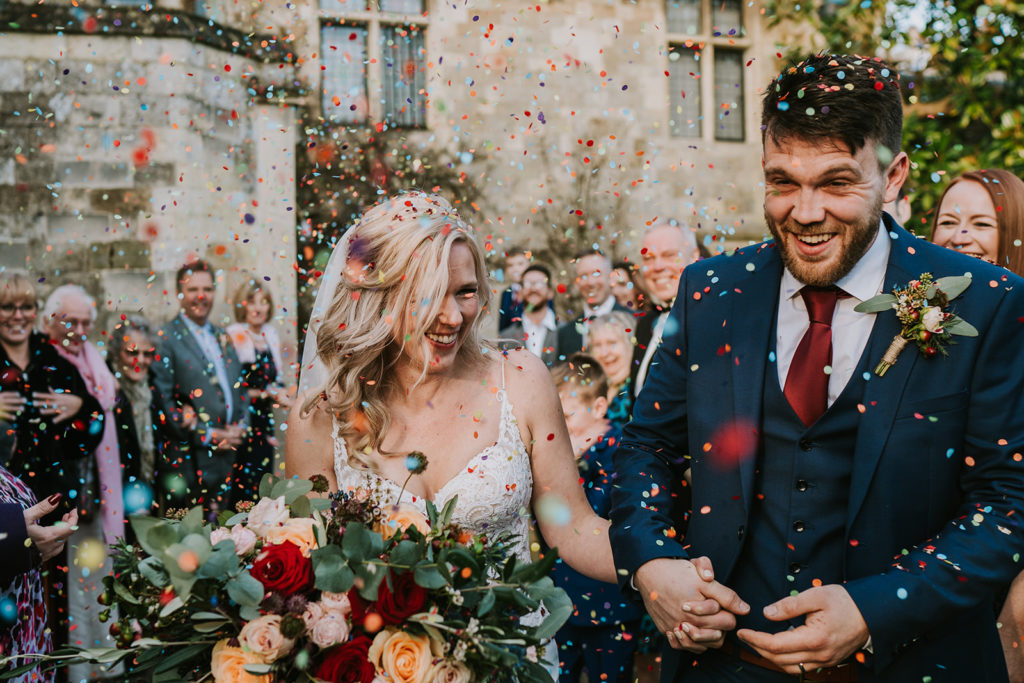
Why is it important to analyse your business? And how do you do it?
It’s because it’s the only feedback that we have. It’s the only thing that, and I hate numbers. I am not a numbers person. I am, self-diagnosed mathematically dyslexic. They all look the same to me, but when you are a creative and when it is just you running a business, it is just you day in, day out making those decisions, spending that money, putting in that effort and you don’t have a boss or a team to say, well, yes, this is an improvement on the previous quarter. Fantastic. You’re doing a good job and you don’t have, you know, the obvious often the services we provide our couples. Don’t really, they’re not really linked back to how well our business is doing because it tends to be quite a one-off thing. And in most service-based industries. So you’re not going to necessarily get the feedback of yes, your business is doing well from your individual clients.
So the only feedback you have is data, that’s it. And so what I always teach my students is that data equals decisions because otherwise you’re going to get stuck in that emotional feedback loop. And you’re kind of going to go, well, I don’t know if I should make this decision. And again, I can guarantee you that CEOs are going well. What does the data tell us? Okay. The data tells us that, for example, in my case, I know that around 80% of all couples who get on a phone call with me will convert. I have a very high conversion rate on the phone. And it’s just something that I know about me, but I didn’t know it was that high because obviously everyone that doesn’t book, you seems massive and super important and you think you’re failing. But once I realized that 80% of the people who will jump on the phone with me will convert.
It meant a I could value those phone calls and know that it was something I was good at without getting any sort of feedback. And B it meant that I know in my marketing process, it is so valuable to me to get someone on the, on the phone with me. And I know that based on what I charge for my services, I’d be happy to pay it up too. If someone said to me, how much would you pay? I’ve got someone who wants to have a phone call with you. I know what that is worth, what I would, what value I would put on that. And it is easily a hundred to 200, possibly even 250 pounds, because I know that that is going to be good for my business. Yeah. If I have someone follow me on Instagram, I know it’s worth diddly squat because I track things.
And so I put a lot less pressure on myself to post on Instagram than I do to have my CRM set up in a way that makes booking a call process really easy and effective. Because again, I’m not looking at anybody else in the business. I’m looking at my own numbers and my own data. And I know that people who inquire via my website are my best performing conversions. They’re just going to book with me. So all of those things help you make decisions and help you make decisions faster. And if there was one thing that I would love to almost pick up the entire creative service industry and sort of shake us all is to stop wasting time making decisions. And I’ve said it already stop going into Facebook groups and saying, well, what about this? And what about that? Just make a call.
You’re going to learn from it either way. And you’re going to waste a lot less of your precious time doing it. And if you are tracking data efficiently, so important things to track would be who is inquiring with you and how are they finding out about you have that in your, in your form when they are in your sort of your lead capture form, you know, do they find out from you through Facebook, through another photographer, through someone else? How many of those people are inquiring through what channels, how many of those then you can get as nitty gritty, as you want, are replying to your initial email. For in my case, 99% of the people who book me will live reply to that initial email. So I’ve put a lot less pressure on myself and my CRM from sending follow-up emails. Cause I know that actually most of the people who book me will respond to that first email.
That’s a pretty good statistics. I have other things would be how much are they spending? So people who are referred to me through X clients, which is only recently started to happen, or people who know me convert faster and pay me a lot more, that’s an important feature to have. So it means that I know that I’m not sending out gifts to my clients from an emotion. I mean, I am a gift giver, but not from an emotional perspective, but I’m sending it to them because I know that if they do speak to their friends and those people inquire with me, it’s actually good for my business. So I think that’s all of the reasons that you should be tracking that information. You can do it as simply as an a spreadsheet. If your CRM allows for it, you can do that. You can look at it once a year. You can look at it every week. You can look at it just when you need to make a decision. But the important thing is, is that that data is going to empower you to make a better, quicker decision that will be focused on your business growth. And that is what every creative should have, because it’s going to free you up to be more creative and to focus on the part of your business that you really love and enjoy.
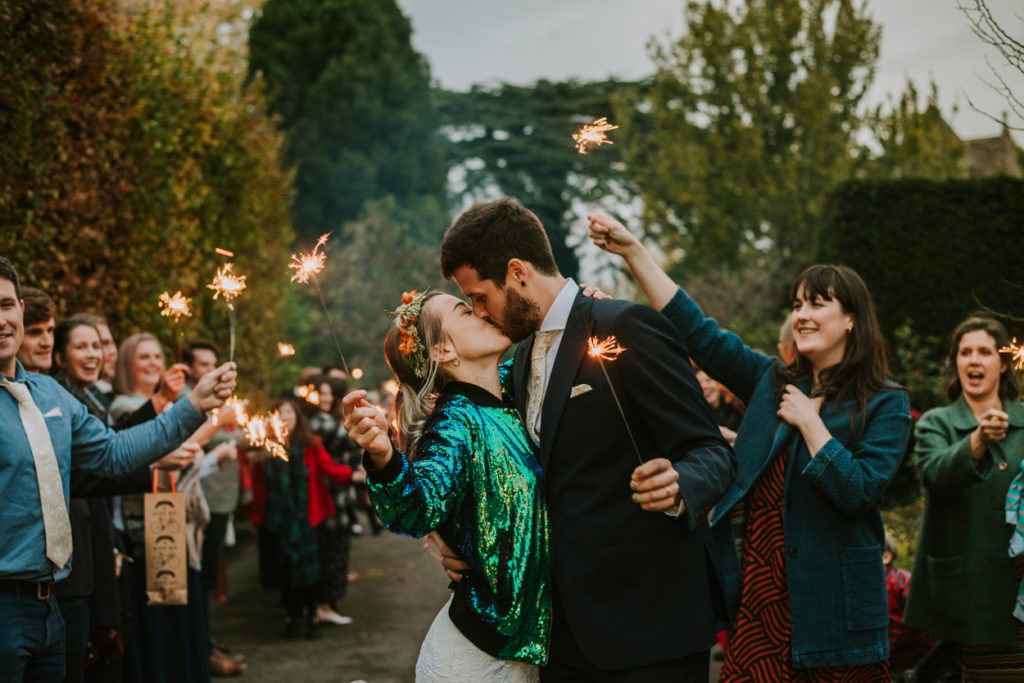
How do you create a business strategy?
So I think strategy gets quite a bad reputation. And another thing I like to remind my students and people I speak to is that strategy is not a dirty word. So being strategic, this is my sort of rough description and how I feel about it. It’s making the best decision with the resources you have that will get you to your goals. That’s it. And that is a kindness. That is a kindness to you. It’s a kindness to your couples. You’re being strategic. You’re not over exerting yourself. You are not wasting time or resource or effort. It is a good thing to do. And it is not a dirty thing or a conniving thing to be strategic and have a strategy. And I think it gets quite a bad reputation. So what you need to be doing, whether you want to create an entire marketing strategy.
I mean, that’s the first thing I have my students do in the course so that they’re not making, I don’t want to say stupid decisions, but they’re not making unnecessary decisions or the wrong decisions for their business. When it comes to paid marketing. If you want to go that route, you can, but at the very least pause and ask yourself, am I making the right decision? That is getting me to the goals that I have for my business, for my life. Am I making the decision based on the resources I have or the resources I can get? So like, am I using what I have to do that? And I think a lot of times people say yes to a lot of things. Again, things like saying, oh yeah, I’m going to start offering family photography in addition to wedding photography. But if you think about it, you are best off taking on one wedding booking.
And this is my business. I am better off taking one wedding booking on a Saturday at a high price point than disrupting my random Wednesday by driving an hour away, to photograph a family that is never an hour. So as an hour and a bit, and by the time you’ve had some tea and you come back, that is not worth my time. It doesn’t mean that I don’t enjoy photographing families, but I’ve made a strategic decision based on my business goals. My time goals, my lifestyle goals, that even though that shiny thing of like, oh, but it’s more money. It is not worth my time. I would be better off spending that Wednesday that has already disrupted because I’ve now driven. And, you know, spent time with a cute baby already disrupted writing a blog post or revisiting my Facebook ads or engaging on Instagram, or there’s a lot of other things that would better serve me.
And that is a strategic decision. So even if you don’t want to have a full sort of a full fat business strategy or a marketing strategy, you need to remove emotion from the equation, remove comparison from the equation and ask what is right for you. And it doesn’t always have to be financial if you enjoy making reels and they give you a little bit of joy, make a reel, but I’m not making reels cause it’s not gonna, it doesn’t help my business. I’ve I’ve tried it. I’ve tested it. I’ve learned it. Do you know what it’s not working for me? I’d rather take that entire day that they’re going to take and value that at health 20 pounds an hour for an entire that’s, you know, 160 pounds, if it’s an eight hour day, my time is worth that amount. I might as well put that money into ads and actually get a booking that way rather than putting it into creating reels. And that’s all that we’re doing when we’re having sort of a strategy we’re making strategic decisions. The most important thing is to know your goals, have a good understanding of what resources you have. And then essentially, and I’ve written here, say yes, more to the right things and say no more to the wrong things.

Thank you!
Thanks again to you all for joining us and a huge thanks to Micaela for joining us on the show!
If you have any suggestions, comments or questions about this episode, please be sure to leave them below in the comment section of this post, and if you liked the episode, please share it using the social media buttons you see at the bottom of the post!
That’s it for me this week, I hope you all enjoyed this episode.
See you soon,
Sally

About Micaela Lindsay
Micaela is a creative entrepreneur from South Africa, now living and working in South East London. Working as a wedding photographer and creative entrepreneur, she’s passionate about building and helping others build successful, profitable and efficient businesses. Get It Together is her online educational hub, in which she offers courses to support other ambitious wedding industry creatives in their endeavours, so they can learn how to run their business like a CEO.
